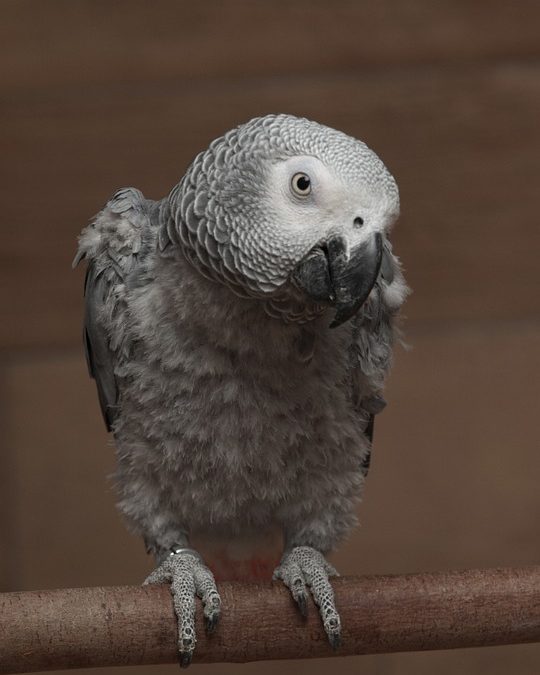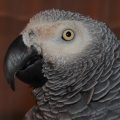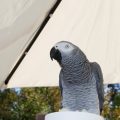Table of Contents
In the wild, an African Grey parrot’s diet includes a variety of seeds, nuts, fruits, and berries. As a bird owner, it is your responsibility to care for your African Grey parrot to the best of your abilities. This includes feeding it properly. African Grey parrots are omnivorous creatures who can bond with humans well, trusting them to the point of eating almost everything they are offered.
However, there are times when humans unintentionally feed African Grey toxic foods, leading to the birds getting sick or, in severe cases, dying.
To prevent this from happening, here’s a list of foods you should never feed to your African Grey parrot.
Avocado
Avocados are toxic foods to African Grey parrots; ingesting the skin and pit of avocados have been known to result to cardiac distress and eventual heart failure in various bird species. After eating an avocado product, your African Grey may experience shallow breathing, excessive preening, and lack of appetite, which may subsequently lead to more serious complications.
Chocolate
Though a guilty indulgence for humans, chocolate might as well be poison for birds. It contains the chemical theobromine, which may cause vomiting and diarrhea in your pet bird. In severe cases, it can also affect the bird’s central nervous system, leading to arrhythmia, seizures, and death.
Coffee and caffeinated beverages
You might need caffeine to function, but it is extremely hazardous for your African Grey. It can result to cardiac malfunction in bird species and is linked with increased heartbeat, arrhythmia, and hyperactivity.
Instead of coffee or tea, give your African Grey toxic foods some fruit juice or vegetable juice instead.
Onions
Onions make our dishes delicious and delightful, but they can cause fatal condition for your pet bird. Ingestion of onions in bird species can lead to vomiting, diarrhea, as well as other problems in the digestive system. Furthermore, prolonged exposure to onions can result to hemolytic anemia, wherein red blood cells are quickly destroyed and removed from the bloodstream.
Salt
Keep any and all salty foods away from your African Grey. Saltine crackers or chips shouldn’t be given to your bird, nor should you offer it any foods with high sodium content. This includes fast food, crackers, and canned vegetables. Feeding your African Grey with salty foods can lead to its dehydration, kidney dysfunction, and even death.
Seeds or pits of fruits
Fruits such as apples, apricots, cherries, pears, peaches, and plums can be enjoyed well, but be wary of their seeds, which are known to contain trace amounts of cyanide. Before feeding your African Grey these fruits, ensure that all the seeds and pits have been removed. Take away the skin as well, since there may be pesticides lingering on it that could be African Grey toxic foods.
Tomato leaves, vines, and stems
Tomatoes are tasty treats for you African Grey. But before giving it to them, remove all leaves, stems, and vines as these parts are highly poisonous to them. Thoroughly wash the tomatoes beforehand as well in order to remove traces of pesticide and other toxins.
Alcoholic beverages
It is common sense to not give a pet bird, or any pet for that matter, an alcoholic beverage. However, there may be times when your African Grey toxic foods is given freedom to roam around the room and help itself to various food and drinks supply. A cocktail left unattended may look or smell promising to them. Remove all such beverages away from your African Grey, as alcohol depresses the organ systems of bird species. Alcohol ingestion can have fatal consequences.
Other African Grey toxic foods are the following:
- Asparagus
- Carbonated sodas
- Chestnuts
- Chives
- Cigarette tobacco
- Cumin and cumin powder
- Dried beans
- Dried fruits
- Garlic
- Gatorade
- Leeks
- Mushrooms
- Nutmeg
- Olives
- Parsley
- Rhubarb
If you’re unsure when a particular food is bad for your African Grey, consult with your avian veterinary. It’s better to be safe than sorry, after all.
Emergency Care Kit for Your African Grey
In case you accidently fed your African Grey something that is toxic, it is important that you have an emergency kit on hand. This can help you treat your African Grey in the meantime before you can get help from a professional avian veterinarian.
- Corn starch or styptic powder, which can be used to stop bleeding for toenails, beaks, or feathers
- Pedialyte to help replace electrolytes in sick or dehydrated birds
- Hemostat, fine needle-nose pliers, and tweezers
- Betadine – to disinfect a bleeding wound
- Sterile saline solution
- Towel
- Sterile gauze to cover wounds and injuries
- Scissors to cut the gauze
- Q-tips
- Syringes
- Heating pad to keep your African Grey parrot warm
- Small carrier for transport and emergency housing
Keep your African Grey’s bird medical records on hand, as well as the vet’s contact information. It is recommended that you take note of the closest clinics to your home and which ones are open for emergencies no matter the hour. We hope in this article, you learned about African Grey toxic foods.






 Author and long-time animal lover. Sharing knowledge on pet care through experience and the written word.
Author and long-time animal lover. Sharing knowledge on pet care through experience and the written word.